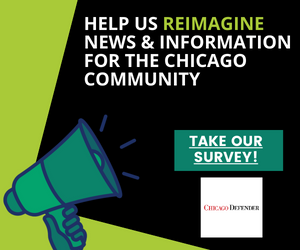While medical professionals, law enforcement officers, and grocery workers have been on the front lines of the COVID-19 and deemed essential, white-collar workers such as office managers, assistants, bankers, and other office workers who perform essential services for City and State agencies have reported to work daily to serve the public in different capacities that have gone unnoticed. Like all essential workers, white-collar workers risk contracting the virus and bringing it home with them every time they walk in and out the doors of their homes. While their battle with the virus is not as extensive as others, they are still required to work away from home to maintain employment.
We spoke with five professionals who hold various leadership positions at their respective jobs (They each requested to remain anonymous). Each professional expressing their thoughts and concerns about working during the COVID-19 crisis. Two of the professionals have returned to work after being closed and working remotely for months during the height of the COVID-19 crisis. For others working from home was never an option. One professional, a Banker, worked regular business hours until May, when her job decided to move to a rotating schedule, reducing her time in the office from five days a week to three. Since the beginning of the pandemic, she has been quarantined twice due to COVID-19 outbreaks at her job. A Production Team Manager for a well-known company stated that her company shut down for two weeks, but she and her team members had to report to varying plants for work. A Utility Operations Manager did not have the option to work from home during the pandemic, which sparked several concerns for her and her loved ones. To protect herself and her family from contracting the virus, she focused on adhering to safety protocols at work and following the CDC’s suggested measures. Rather than socializing after work, she would, and still does, focus on leaving directly to head home and avoid contact with others as much as possible.
Each professional had varying concerns about theirs and their loved ones’ health, but they made sure they were cautious with their actions, as they knew it could pose adverse effects on them and those they came in close contact. When asked if they are more comfortable reporting to work now than initially, the responses varied.
 A Human Resources Manager revealed that she was never uncomfortable with going to work, but was more concerned with her co-workers following social distance protocols while working in the same space. A Director of Client Services stated that she is not as paranoid as initially; however, she is still cautious with her actions. Yet, the banking professional has serious concerns about coming to work. Her offices have already shut down twice. She is still required to see clients who need to conduct banking business and corporate clients and small business owners who have needed assistance preparing SBA PPP loan applications and securing emergency funds. She stated there was an increase in bank traffic because some of her older clients were not comfortable using electronic or online banking.
A Human Resources Manager revealed that she was never uncomfortable with going to work, but was more concerned with her co-workers following social distance protocols while working in the same space. A Director of Client Services stated that she is not as paranoid as initially; however, she is still cautious with her actions. Yet, the banking professional has serious concerns about coming to work. Her offices have already shut down twice. She is still required to see clients who need to conduct banking business and corporate clients and small business owners who have needed assistance preparing SBA PPP loan applications and securing emergency funds. She stated there was an increase in bank traffic because some of her older clients were not comfortable using electronic or online banking.
In some cases, customers needed cash because ATM’s were destroyed in their neighborhoods. These professionals experience some apprehension about reporting to work now. These concerns stem mostly from their co-workers’ actions outside of the workplace. Many of us communicate with our co-workers or work-family on social media and see how weekends are spent at non-socially distanced gatherings without masks. One interviewee revealed that a co-worker traveled out of the country, failed to quarantine, and report their actions to upper management, putting all who encountered them potentially at risk. Another revealed that she has co-workers who visit areas currently on Chicago’s Emergency Travel Order list frequently and refuse to quarantine when they return.
While they cannot police the activity of their colleagues outside of their presence, they did reveal that, for the most part, people are following safety measures on an individual basis. At the same time, while at work, most will cooperate when they know they are under watch. The CDC released guidelines that office building employers, owners, and managers should follow to maintain a healthy and safe workplace for employees and clients.
Going to work during a global pandemic can be more of a struggle and a source of increased stress and anxiety. It is essential to maintain an intense level of cleanliness at your offices and workstations for the sake of everyone’s health. Even after the pandemic subsides, continue to follow health and safety recommendations to protect yourself and others.
Heart Check
As we continue to live through this time, it is imperative to remember to be considerate of those who report to work to keep productivity going and their livelihood. Everyone is essential to the survival of humanity every day, and it is vital to ensure we support everyone in any way we can. If you see anyone who is on their way to work, greet them with a smile and wish them well no matter their job title.
Liz Lampkin is a Lifestyle, Love, and Relationship writer. Follow her on social media @Liz_Lampkin.



